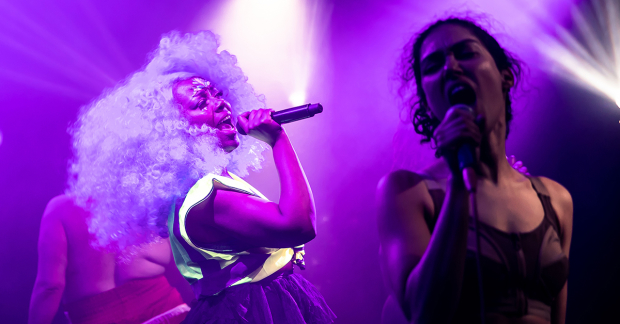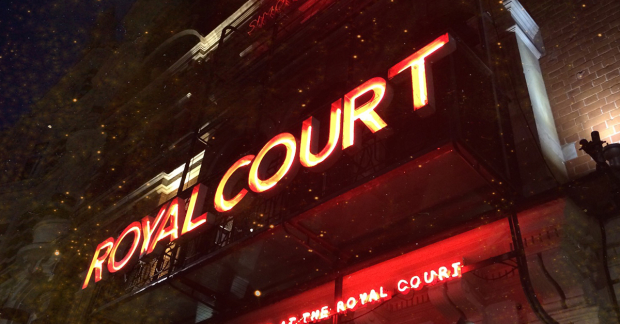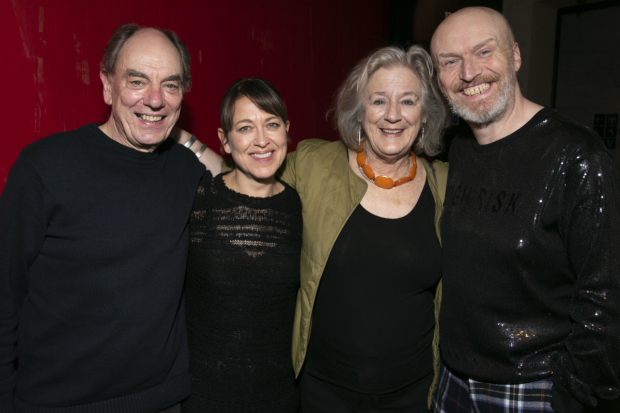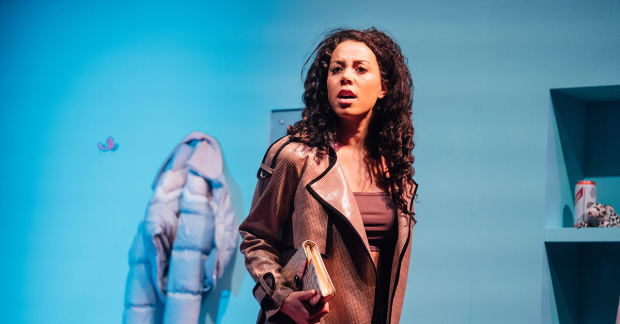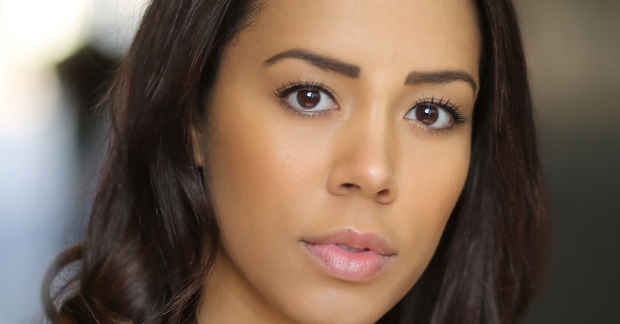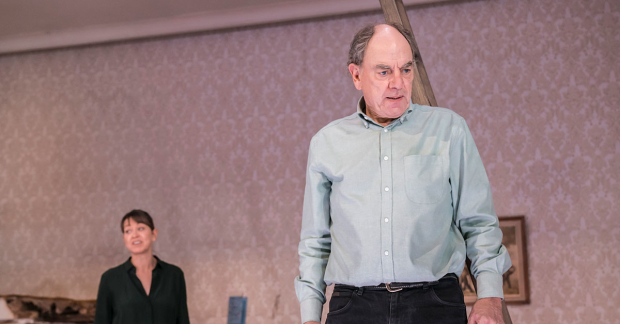Review: Inside Bitch (Royal Court)
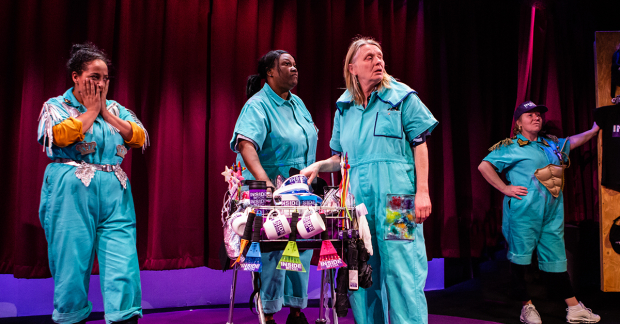
© Ali Wright
This isn't like a theatre show. It's a piece of anti-theatre that asks how on earth you make a play or a film, or a TV script, for that matter that truthfully reflects the experiences of women who have been to prison. It's joyful, messy and thought-provoking, and I found I emerged after an hour feeling incredibly positive. Which is not at all what I expected.
It's the creation of Clean Break, the women's theatre company that works with women who have been to prison. Conceived by writers Stacey Gregg and Deborah Pearson and devised with the Clean Break members and actors Lucy Edkins, Jennifer Joseph, TerriAnn Oudjar, and Jade Small, it takes all the tropes that define our views of women's prison and holds them up to a fierce light. Cleverly, it begins with the most famous prison moment of all – the opera scene from The Shawshank Redemption – before explaining that as part of the research for the production the cast watched a whole load of prison dramas, including – inevitably – Orange is the New Black, which they screened for prison staff.
Edkins reads a verbatim reaction, that is absolutely furious about the show's lack of reality. "None of those people would be in the job because that is atrocious." Then on it goes, in a series of short, punchy scenes, with the cast working their way both through the clichés and towards a more truthful depiction of prison life. They use dance, card games, videos, question and answer sessions with the audience, monologues, script meetings, bright boiler suits and quiet moments to make their points.
What is admirable about them is that they refuse utterly to replace one easy narrative arc with another. We glimpse their experiences, but they are not manipulated or mediated to make us "understand" or to gain sympathy. Their stories, when delivered, are done so through methods that are deliberately distancing: when Joseph recounts being arrested in front of her children and her grief about what they have suffered, she does so in the confines of a glass box; when Oudjar says simply "I am lucky still to be alive", we see her on film, not on stage.
Such insights are leavened with moments of humour and observation. The group insist that their prison show will not star a blonde women, for example. Oudjar observes, in passing, that her fellow prisoners didn't even have teeth, let alone tits. One, she adds, was nicked for stealing a trifle. "But that's not going to make good TV."
The scenes are a bit hit and miss. A card game of prison trumps is deliberately incomprehensible, but also falls flat. A trolley of branded souvenirs comes and goes in a flash. But the moment when the women lean forward and each ask a single question that they think the audience will be wanting answered is quietly devastating; each lands with purpose, challenging our preconceptions and prejudices.
Above all what the show succeeds in doing is making the women emerge as fully-rounded people. By the close, they are not defined by their experience of being in prison, but by their liveliness, their resilience, the sheer force of their personalities. Which is exactly, I suspect, what they intended.



